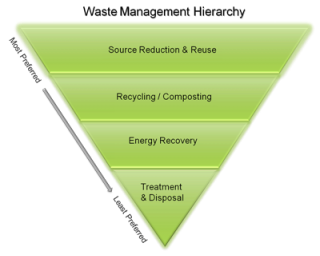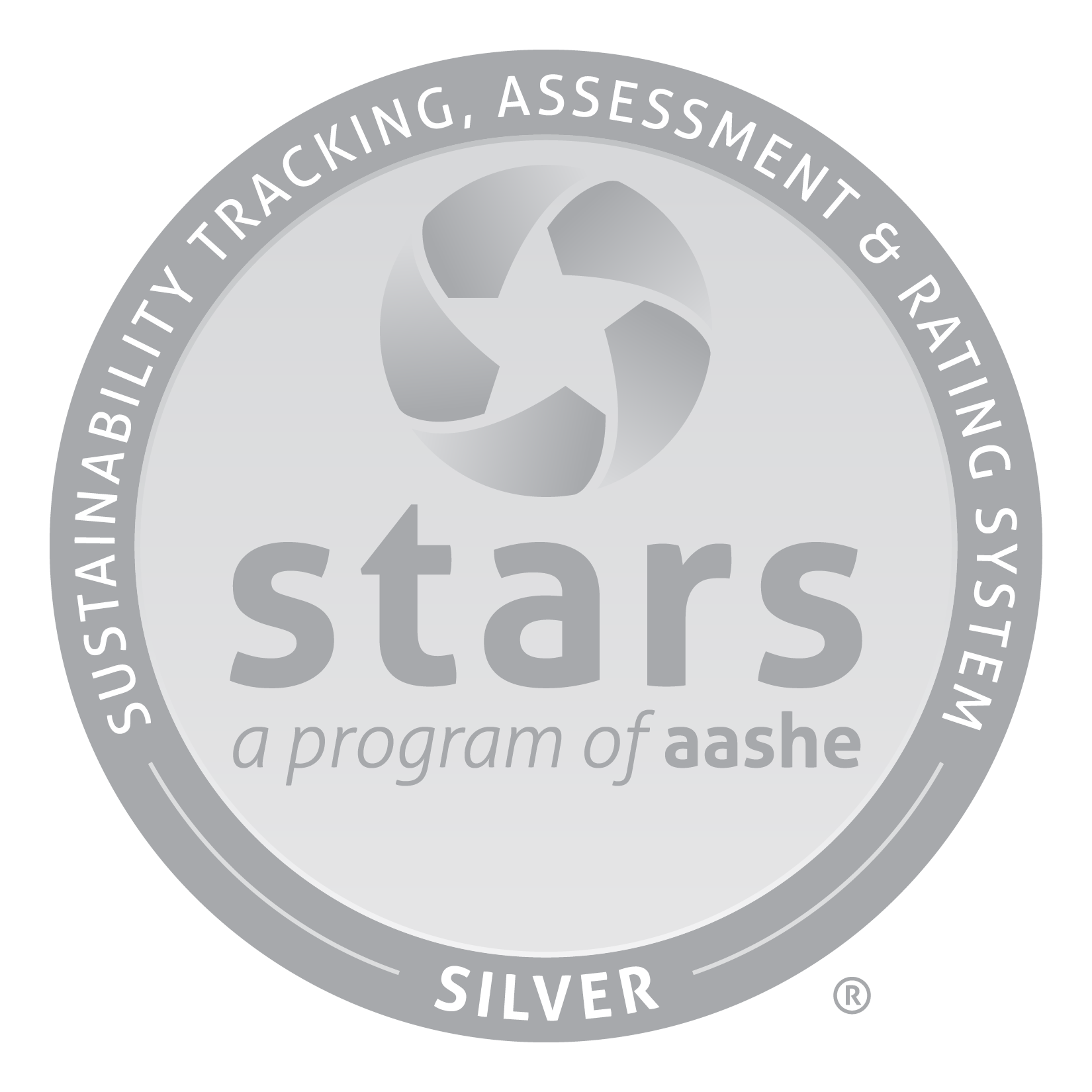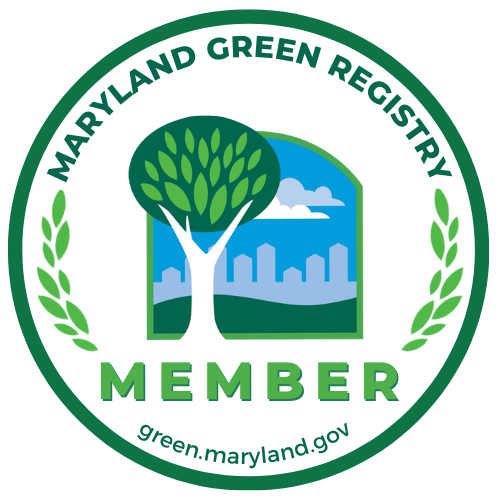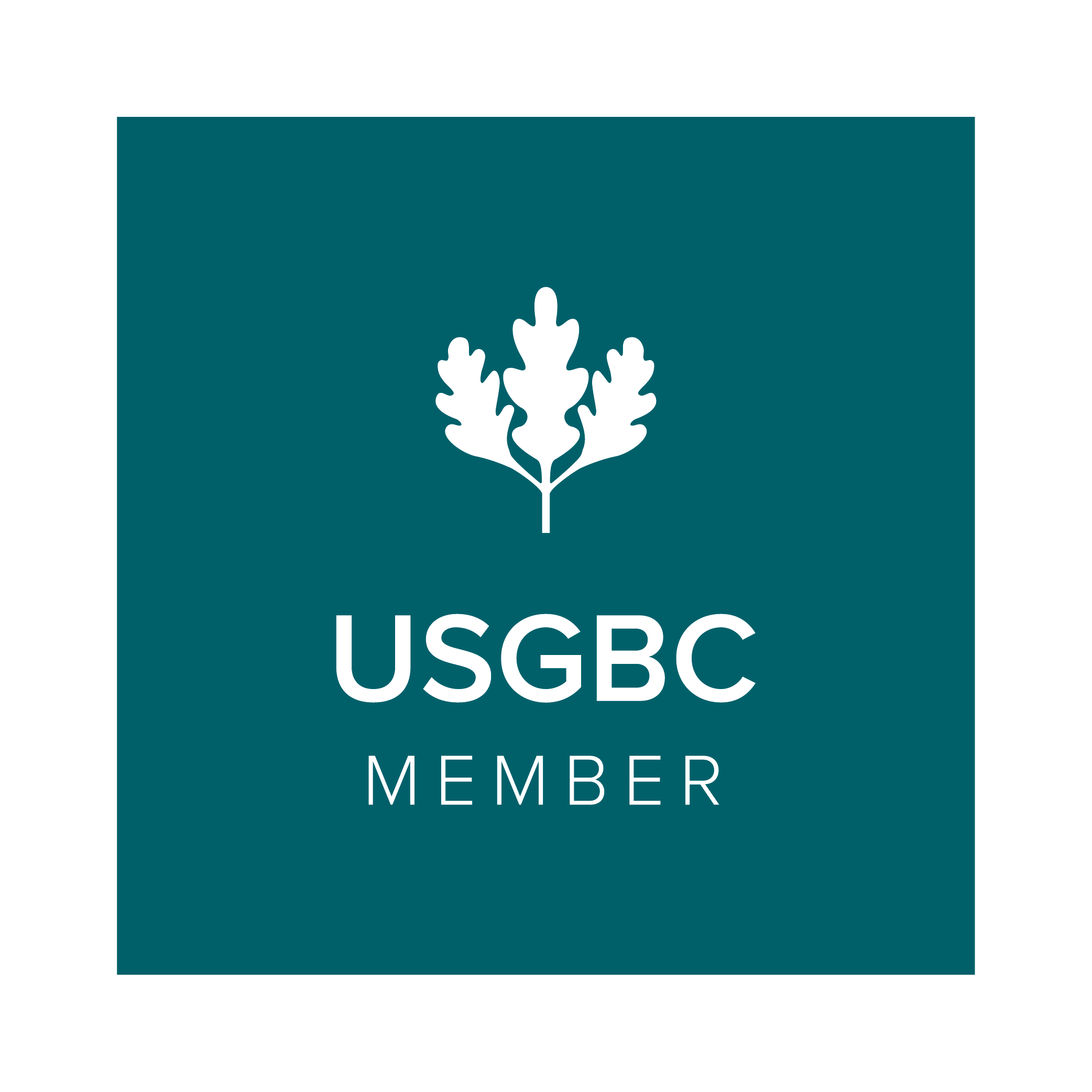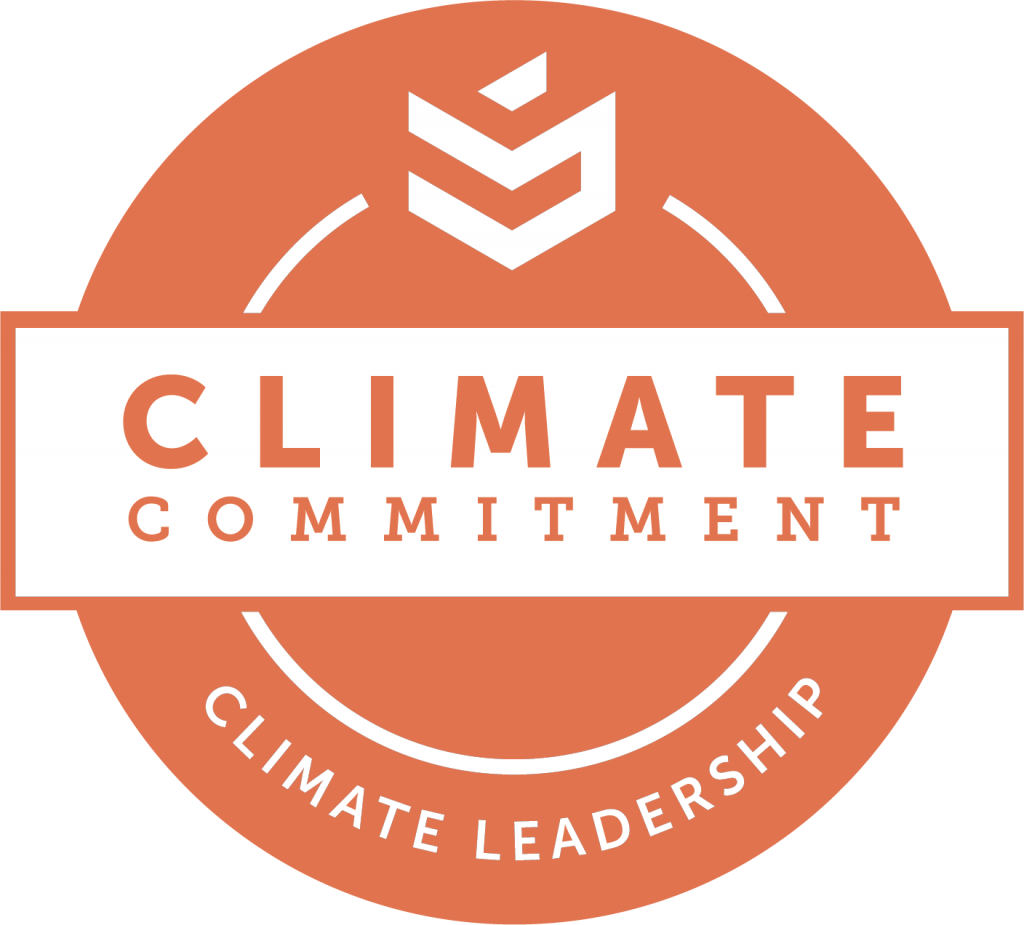When people think of sustainability, recycling is often what first comes to mind. However, of the three R’s (reduction, reuse, and recycling), recycling should be a last resort, with reduction and reuse prioritized where possible. See the Environmental Protection Agency’s (EPA) Waste Management Hierarchy below to learn more about materials management.
EPA Waste Hierarchy
